Index relies entirely on the support of donors and readers to do its work.
Help us keep amplifying censored voices today.
[vc_row][vc_column][vc_single_image image=”101103″ img_size=”full” add_caption=”yes”][vc_column_text]Cultural stereotyping, extremism, a patriarchal society, a deficit of safe and secure educational environments, verbal and sexual harassment. These are the terms that Fereshteh Forough, founder of Afghanistan’s first ever coding school for girls uses to describe what women face in her country every day.
This repression continued after the fall of the Taliban in 2011, the Code to Inspire CEO told Index on Censorship, and still “prevents women from participating in many social activities outside of their hometown”.
Forough is working to open up online spaces for women and hopes that in doing so these digital freedoms will break down social and economic barriers in Afghanistan. Code to Inspire’s first school opened in Afghanistan in 2015 and teaches girls how to programme. By empowering young women Forough hopes to carve a way through the digital space, which mirrors the male-dominated spaces of their lives, so they can participate in the economic market in Afghanistan and gain independence. “Knowledge is power and technology is the tool for empowerment,” she said.
Harnessing technology is a way, Forough believes, of liberating women in all aspects of their lives. It is a way of using progress to combat regression. “Looking at the technology and how it enables people to cross borders without geographical boundaries and share their stories is such an empowering tool,” she explains.
“For an Afghan woman who can not commute due to family restrictions or safety reasons to other cities or outside, it can help her to explore the world virtually, get connected to the people outside of Afghanistan and feel more confident.”
Connecting
Internet use in Pakistan and Afghanistan is far from straightforward and being a woman makes it even harder.
Internet access in Afghanistan has much improved since the fall of the Taliban. Yet despite the current government’s recognition of the tool as important for the country’s development, problems remain. The CIA factbook reported in 2016 that only an estimated 10.6% of the country’s population had access to the internet. The National Unity Government is working to end gender inequality and there are more women holding positions of power than at any other time in history. 27.7% of seats in parliament are held by women. But according to Global Rights Study, 87% of women experience physical, sexual or psychological violence in their lives. Stigma still surrounds female education despite rising numbers in school attendance.
Freedom House concluded in their 2017 Freedom of the Net report that Pakistan’s internet is “not free”. Starting in June 2016, Pakistan’s mobile internet service was shut off for more than a year in Federally Administered Tribal Areas. The internet has been shut down several other times at politically divisive moments. As the country comes up to an election this year, Freedom House predicts internet shutdowns and for political speech to be restricted online.
The country’s first comprehensive cybercrime act was passed in 2016 by the National Assembly and Senate, enabling censorship and surveillance. Alongside infrastructure limitations, taxes on the internet are high and prevent the majority of the population from connecting. Many rural areas remain offline due to ongoing conflict or underdevelopment.
“Women are being excluded from the digital revolution”
While progress may be slow and the internet unstable, going online presents fresh possibilities and challenges for women in these neighbouring countries. As new technologies clash with historically patriarchal cultures, being connected means being seen. Being plugged in provides greater scope for education and potential participation in an ever-expanding jobs market. Online spaces, ideally, enable democratic discussion and freedom of expression. But in societies where independent women can be regarded as shameful, prejudice inevitably follows them into online spaces.
Mats Granryd, director general of the UN’s Working Group on the Gender Digital Divide said in their 2017 report: “Mobile is the dominant platform for internet access in many parts of the world. The issue is that while mobile connectivity is spreading quickly, it is not spreading equally.” Oliver Rowntree reported from GSMA’s Connected Women’s Study 2018: “Women are being excluded from the digital revolution. Only 10% of women in Pakistan use mobile internet compared to 26% of men.”
Access to technology and autonomy online are difficult, however. Access is often monitored by male family members or connections. Some women are fatally endangered through online activity.
In 2016 Qandeel Baloch died after being strangled by her brother for her social media presence. In his confession, he said: “Girls are born only to stay at home and to bring honour to the family by following family traditions.” Online harassment is rife and further discourages women from accessing information communication technologies, especially with social support in such situations unlikely.
“The digital divide between men and women in Pakistan is among the highest in the world as a result of religious, social, and cultural restrictions on women owning devices,” Freedom House’s report outlines. Militant Islamic attacks have also been carried out on internet cafes for encouraging moral corruption.
Professor Deborah Wheeler has lectured throughout the Middle East and Europe about her research into the internet’s impacts on women. She currently works in the United States Naval Academy’s Political Science Department. Wheeler is passionate about the potential for technology to empower women everywhere.
She tells Index on Censorship: “Given social constraints on women’s movement, participation in public life, dress, expectations and voice in the Muslim world, digital communication gives women tools with which to create change on issues which directly affect their lives.”
“While censorship and punishment for violating media laws by directly opposing the government online do occur, what I find more interesting and more promising as a force for change in women’s lives, are the kinds of widespread experimentation with voice and agency taking place in everyday life.”[/vc_column_text][/vc_column][/vc_row][vc_row][vc_column][vc_raw_html]JTNDZGl2JTIwc3R5bGUlM0QlMjJtYXgtd2lkdGglM0E4NTRweCUyMiUzRSUzQ2RpdiUyMHN0eWxlJTNEJTIycG9zaXRpb24lM0FyZWxhdGl2ZSUzQmhlaWdodCUzQTAlM0JwYWRkaW5nLWJvdHRvbSUzQTU2LjI1JTI1JTIyJTNFJTNDaWZyYW1lJTIwc3JjJTNEJTIyaHR0cHMlM0ElMkYlMkZlbWJlZC50ZWQuY29tJTJGdGFsa3MlMkZuaWdoYXRfZGFkX2hvd19wYWtpc3Rhbmlfd29tZW5fYXJlX3Rha2luZ190aGVfaW50ZXJuZXRfYmFjayUyMiUyMHdpZHRoJTNEJTIyODU0JTIyJTIwaGVpZ2h0JTNEJTIyNDgwJTIyJTIwc3R5bGUlM0QlMjJwb3NpdGlvbiUzQWFic29sdXRlJTNCbGVmdCUzQTAlM0J0b3AlM0EwJTNCd2lkdGglM0ExMDAlMjUlM0JoZWlnaHQlM0ExMDAlMjUlMjIlMjBmcmFtZWJvcmRlciUzRCUyMjAlMjIlMjBzY3JvbGxpbmclM0QlMjJubyUyMiUyMGFsbG93ZnVsbHNjcmVlbiUzRSUzQyUyRmlmcmFtZSUzRSUzQyUyRmRpdiUzRSUzQyUyRmRpdiUzRQ==[/vc_raw_html][vc_column_text]Time for change
Like Forough, Nighat Dad, who runs Pakistan’s Digital Rights Foundation, is trying to enable just that. A digital rights lawyer and activist in Pakistan, she is fighting against women’s exclusion from online spaces and working to ensure safety online. She told TED: “It’s how patriarchal norms treat women in offline spaces, and the same mindset is true in online spaces.”
Dad explains that her family forbade her from having a phone as a young woman. Her husband, from whom she is divorced, allowed her to have a phone but it was so strictly monitored she says it felt more like a surveillance device. She founded the Digital Rights Foundation, which like Code to Inspire was shortlisted for a 2018 Index on Censorship Freedom of Expression Awards Fellowship, in 2012 to defend women’s rights online. They recently established a helpline for women experiencing harassment online.
Women, who make up only 20-25% of internet users in the country, are regularly subjected to revenge porn, harassment, blackmail, privacy violations and more. As a result, they retreat from online spaces. Dad wants to prevent this silencing of women’s voices.
The DRF said: “Digital Rights Foundation envisions a place where all people, and especially women, are able to exercise their right of expression without being threatened.”
Hope
Thanks to the courage and persistence of women like Forough and Dad, things are changing in Afghanistan and Pakistan. Forough is not letting a lack of resources hold her back. “Sometimes you don’t have the available resources to succeed,” she said. “As a refugee born, I learned to be scrappy and resourceful. Change is possible, no matter who or where you are!”
Over email, she quotes Rumi. “‘Where there is ruin, there is hope for a treasure.’ From the ruins of a shattered nation and shattered lives of refugees can come treasure, if we know where to find it. We hope to empower this generation of young women in Afghanistan with technology so that the next generation will be peacebuilders and not war makers.”
Women like Nighat and Fereshteh are forging a new future for women, both online and off. Nighat tells Index on Censorship she hopes for “A future where women don’t have to fight for the rights they were born with, a future that is without discrimination and is safe, inclusive and free for everyone.”[/vc_column_text][/vc_column][/vc_row][vc_row][vc_column][three_column_post title=”Digital Freedom” full_width_heading=”true” category_id=”4883″][/vc_column][/vc_row]
[vc_row][vc_column][vc_video link=”https://youtu.be/Ev3C9EZqY48″][vc_column_text]Fereshteh Forough is the founder and executive director of Code to Inspire, which opened its first coding school for girls in Afghanistan in November 2015, and aims to address the low levels of female education and paltry levels of economic participation by women in the labour market. 
This is a widely recognised innovative project that helps women and girls learn computer programming. The aim is to tap into the commercial opportunities offered by the online world to liberate women in Afghanistan and offer them economic independence.
Afghanistan is still a male-dominated country where ordinary women find it difficult even to socialise or trave, let alone work, use technology or be economically independent. Women are also discouraged from working where men are present and experience sexual harassment if they do.
Forough believes that with programming skills, an internet connection and using bitcoin for currency, women in Afghanistan can be independent, transform their society and create wealth and economic opportunity.
“Some of the girls had never touched a computer, been online – nothing,” said Forough. “Today, they are able to create web pages and a some are now going out and talking to women-based companies and offering their expertise to them, to help them create websites. This is a real act of resistance in a country where women are still being pushed back for accessing the internet and computers.”
Only 21% of Afghan women receive secondary education according to a UNICEF study and in Afghanistan there is only a 16% female participation in the labour market.
Afghanistan is still economically and politically unstable and parts of it are dangerous and violence-prone, which presents many hurdles to entrepreneurs who want to drive change like Forough, and the women and girls she teaches and helps get jobs.
However Forough is used to challenges. She herself was a refugee. Born to Afghan parents in Iran, she returned to Afghanistan after the fall of the Taliban, and took a position teaching computer sciences at Herat University after studying for a Masters in Germany.
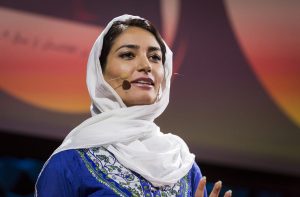
Forough has received support from abroad for Code to Inspire, particularly from the USA with Google, GitHub, but she is still working on a relatively small scale. She needs more support to expand and build her vision round the country franchising the model to other larger cities such as Mazar-e Sharif and Kabul. Forough also wants to organise the first Afghan women hackathon at a national level.
Forough was a 2013 TED Talks speaker and took part in the 2015 Clinton Global Initiative.
In 2017, Code to Inspire enrolled about 20 girls for new graphic and design classes, and later on in the year another group of 60 girls took classes in unity (a gaming software), mobile applications and full stack development.
“It doesn’t matter where you are or what you are, what you have or don’t have,” said Forough. “You should never be afraid to do what you believe in and that’s what Index of Censorship Award means to me, to raise my voice and share my story freely”.
See the full shortlist for Index on Censorship’s Freedom of Expression Awards 2018 here.[/vc_column_text][/vc_column][/vc_row][vc_row full_width=”stretch_row_content” equal_height=”yes” el_class=”text_white” css=”.vc_custom_1490258749071{background-color: #cb3000 !important;}”][vc_column width=”1/2″][vc_custom_heading text=”Support the Index Fellowship.” font_container=”tag:p|font_size:28|text_align:center” use_theme_fonts=”yes” link=”url:https%3A%2F%2Fwww.indexoncensorship.org%2Fsupport-the-freedom-of-expression-awards%2F|||”][vc_column_text]
By donating to the Freedom of Expression Awards you help us support
individuals and groups at the forefront of tackling censorship.
[/vc_column_text][/vc_column][vc_column width=”1/2″ css=”.vc_custom_1521479845471{background-image: url(https://www.indexoncensorship.org/wp-content/uploads/2017/05/2017-awards-fellows-1460×490-2_revised.jpg?id=90090) !important;background-position: center !important;background-repeat: no-repeat !important;background-size: cover !important;}”][/vc_column][/vc_row][vc_row][vc_column][vc_basic_grid post_type=”post” max_items=”4″ element_width=”6″ grid_id=”vc_gid:1523376151785-23b6414e-add3-5″ taxonomies=”10735″][/vc_column][/vc_row]
[vc_row][vc_column][vc_column_text]From a journalist issued death threats for her investigative work and a activist who helps women and girls learn computer programming to foster female economic independence, to an organisation that provides support for female victims of online harassment, the 2018 Index on Censorship Freedom of Expression Awards shortlist includes women who work with bravery and persistence in the face of adversity.
On International Women’s Day, we celebrate and honour the amazing women on our awards shortlist.
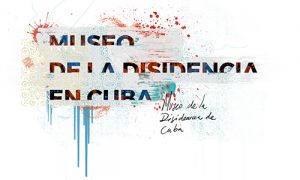 The Museum of Dissidence was co-founded by curator Yanelys Nuñez Leyv in Cuba. Nuñez Leyva was previously a staff writer at a magazine published by the ministry of culture until she was fired for her involvement with the museum. Despite this, she has continued her involvement with the museum organising radical public art projects and installations. The museum also seeks to reclaim a positive notion of the word “dissident” in Cuba.
The Museum of Dissidence was co-founded by curator Yanelys Nuñez Leyv in Cuba. Nuñez Leyva was previously a staff writer at a magazine published by the ministry of culture until she was fired for her involvement with the museum. Despite this, she has continued her involvement with the museum organising radical public art projects and installations. The museum also seeks to reclaim a positive notion of the word “dissident” in Cuba.
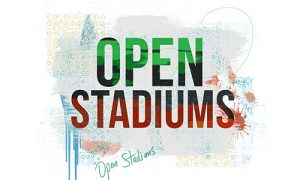 The women-run campaign Open Stadiums asserts a woman’s rights to attend public sporting events in Iran. The campaign challenges the country’s current religious and political regime while engaging women in human rights conversations previously deemed unimportant. Iranian women face many restrictions in public spaces and Open Stadiums has generated conversations on their right to attend public events which is currently a taboo in the country.
The women-run campaign Open Stadiums asserts a woman’s rights to attend public sporting events in Iran. The campaign challenges the country’s current religious and political regime while engaging women in human rights conversations previously deemed unimportant. Iranian women face many restrictions in public spaces and Open Stadiums has generated conversations on their right to attend public events which is currently a taboo in the country.
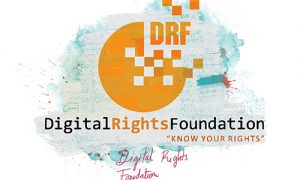 Digital Rights Foundation is a cyber-harassment hotline based in Pakistan that helped over one thousand women in its first year. DRF provides a harassment helpline team which includes a digital security expert, a trained lawyer and a qualified psychologist, all of which can provide specialised assistance to women.
Digital Rights Foundation is a cyber-harassment hotline based in Pakistan that helped over one thousand women in its first year. DRF provides a harassment helpline team which includes a digital security expert, a trained lawyer and a qualified psychologist, all of which can provide specialised assistance to women.
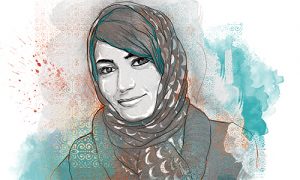 Digital Activism nominee Fereshteh Forough is the founder of Code to Inspire, a project that helps women and girls learn to code. The programme fosters female economic independence and broaden commercial opportunities for women in a patricahal society.
Digital Activism nominee Fereshteh Forough is the founder of Code to Inspire, a project that helps women and girls learn to code. The programme fosters female economic independence and broaden commercial opportunities for women in a patricahal society.
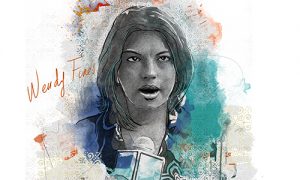 Journalist Wendy Funes risks her life for the right to report in Honduras. Journalists in the country face a harsh and repressive environment, but Funes continues to report on corruption, injustice and violence against women in a country where one woman on average is killed every 16 hours. [/vc_column_text][/vc_column][/vc_row][vc_row][vc_column][vc_basic_grid post_type=”post” max_items=”2″ element_width=”12″ grid_id=”vc_gid:1520503493497-3165bd85-48fb-3″ taxonomies=”10735″][/vc_column][/vc_row]
Journalist Wendy Funes risks her life for the right to report in Honduras. Journalists in the country face a harsh and repressive environment, but Funes continues to report on corruption, injustice and violence against women in a country where one woman on average is killed every 16 hours. [/vc_column_text][/vc_column][/vc_row][vc_row][vc_column][vc_basic_grid post_type=”post” max_items=”2″ element_width=”12″ grid_id=”vc_gid:1520503493497-3165bd85-48fb-3″ taxonomies=”10735″][/vc_column][/vc_row]